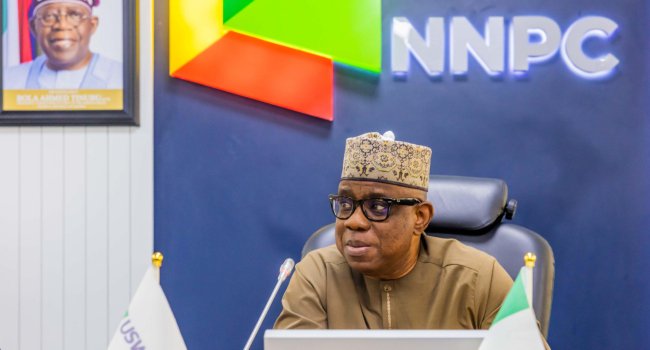THE Nigerian National Petroleum Company Limited (NNPCL) has deducted a staggering N235.6 billion between January and July 2025 to bankroll oil exploration in northern Nigeria, according to its latest financial records.
News Point Nigeria reports that the deductions, made under the Frontier Exploration Fund (FEF) as stipulated by the Petroleum Industry Act (PIA), represent 30 per cent of Profit Sharing Contract (PSC) proceeds earmarked for new oil discoveries.
These frontier basins include the Chad Basin, Benue Trough, and Kolmani field straddling Bauchi and Gombe States.
The fund, designed to diversify Nigeria’s oil production base away from the Niger Delta, has however sparked intense debate over national priorities, transparency, and long-term goals.
Figures reveal significant monthly deductions:
January: $8.16m + N9.73bn = N22.2bn
February: $17.59m + N5.8bn = N31.7bn
March: $18.66m + N10.47bn = N38.3bn
April: $28.51m + N17.71bn = N61.4bn (highest in the period)
May: $1.88m + N33.58bn = N36.5bn
June: $24.17m + N499m = N38.7bn
July: $3.99m + N732.9m = N6.8bn
The seven-month total of N235.6bn underscores the intensity with which the federal government is driving northern exploration, despite mixed results from past decades.
In May, NNPCL’s Group Chief Executive Officer, Bayo Ojulari, announced that oil drilling would resume at the Kolmani field, a long-touted project crossing Bauchi and Gombe States.
Ojulari, appointed in April and hailed by the Presidency as a reformist, told the BBC Hausa Service that northern exploration remained a top priority under the PIA.
“The government is on track with prospects for oil in the North,” Ojulari said, reiterating optimism despite skepticism.
Over the last two decades, Nigeria has spent over $3 billion on northern oil search, including the widely publicised declaration of one billion barrels in reserves, though tangible production results have yet to materialise.
The scale of FEF allocations has reignited concerns about equity between new frontier investments and the Niger Delta’s host communities.
Data from the Nigerian Upstream Petroleum Regulatory Commission (NUPRC) show that in four years, oil-producing communities received a total of N328.2bn through the Host Communities Development Fund (HCDF) only N92.6bn more than FEF allocations in just seven months.
On a monthly basis, frontier exploration funds (N33.7bn) far outpaced host-community allocations (N6.8bn) nearly five times more (392% higher).
An NNPCL official who spoke to News Point Nigeria on condition of anonymity argued that the push is necessary to diversify Nigeria’s crude production base, attract investors, and reduce dependence on the Niger Delta, a region plagued by militancy, oil theft, and production disruptions.
But a Port Harcourt-based oil marketer, Chief Richard Hunurie, told News Point Nigeria that the venture is a costly political gamble, questioning why billions are being sunk into high-risk basins while global energy transition accelerates and host communities remain underfunded.
For now, with the PIA guaranteeing about $400m annually for exploration activities, NNPCL’s northern oil push appears set to continue, raising the stakes in Nigeria’s quest for new frontiers in a changing global energy landscape.







